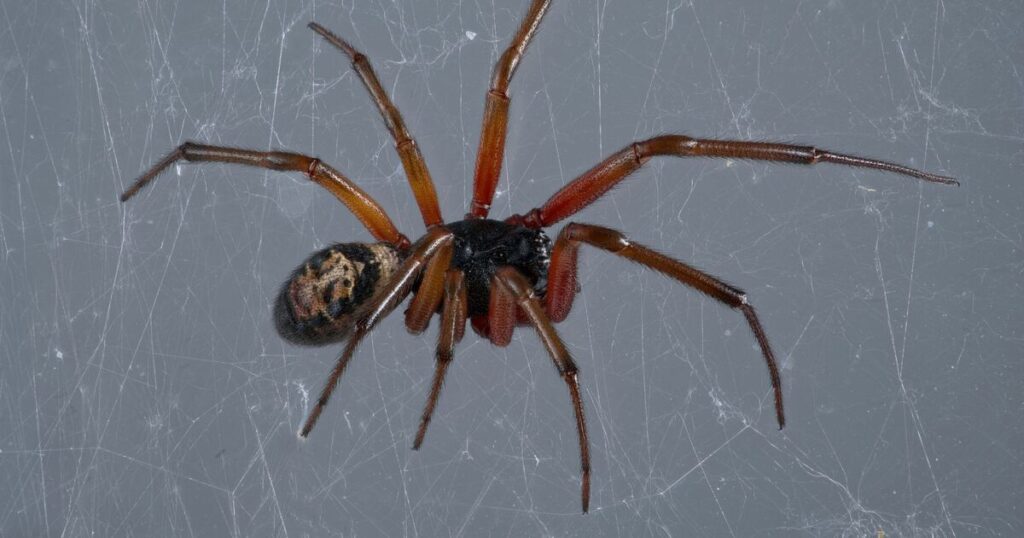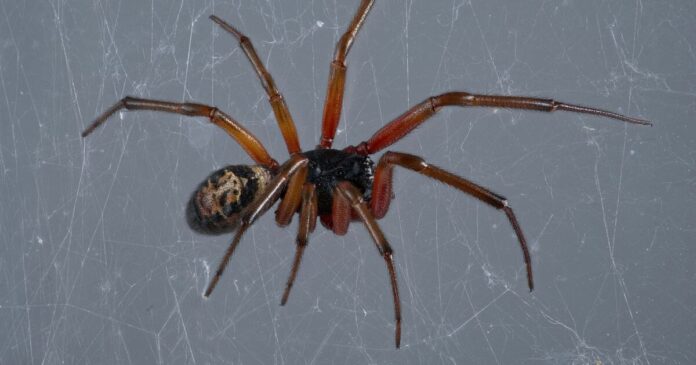
Now officially in Autumn, Brits have been warned of the return of spiders to their homes in cold weather, one article claiming their new numbers will be in the thousands. Procreating spiders in season are set to invade UK homes by the end of September. The arrival of mating season for the eight-legged creatures will lead to many British homeowners preparing in the weeks to come. Here’s what you need to know:
Gentle tennants during the colder seasons, spiders are notorious for causing noticeable distress in many homes, particularly during their mating season which happens roughly between mid-September to mid-October. Those unsettled by their presence need not be in fear for long however as this is a short period in the UK, and reported sightings within the homes decrease significantly by the end of October.
Usually making their presence known this far into September, females have been observed to remain in one place for the duration of their lives, and males are known to be on the move. As a product of the season, male spiders will begin searching for a mate — often entering homes in their search — a contributing factor to why we begin to notice them all the more.
Over 650 various species of spiders can be found in Britain alone. Though a common fear among residents, it is important to remember that only 12 of these can cause physical harm to humans via bites, just under 2%. Most expected to be spotted this month are the Money, Cellar, and Lace Web spiders, along with the House spiders, labelled as one of the UK’s biggest.
Male House spiders can grow up to 10cm; however, this includes the width of their leg span, depending on their diet habits, and is not a regular occurrence. Their lifespans usually correlate to the female’s laying of eggs, marking the end of the season and the mating of the males.
How to prevent spiders from entering your home
Avoid clutter — spiders are prone to dark, damp and messy areas, so double down on spring cleaning, taking care to ensure things are put away to avoid clutter.
Hoover regularly — making sure to dust and hoover rooms regularly, even replacing stored away items in plastic lidded boxes rather than cardboard, will prevent the small arachnids from accessing your home.
Natural light — opt for opening your blinds and curtains during the day to let in light, as spiders thrive in the dark
Essential oils — Spiders are overly sensitive to smells, using their legs to sense safe areas to enter. The Northern Echo suggests: “Tea tree, rose, cinnamon, citrus, peppermint, citronella, lavender and eucalyptus are good oils to try”. Go a step further by creating a spray mixed with water to spritz room corners, window sills and skirting boards. Other strong smells work just as well, such as garlic or vinegar.
Chalk lines — chalk feels alien to spiders, who choose to avoid walking across its surface. Draw lines of chalk on your bed, around window sills and doorways to prevent them from crossing over.
Seal all cracks — wall, floor, and ceiling cracks can all be used to access the home.
Rid your house of foliage — remove plants that grow too close to your home as spiders are known to hide within them. Fallen leaves and wood piles are also perfect nesting places for spiders so extra effore cleaning up your garden will make all the difference.
Don’t fall for conkers — this method has not been backed up at all.






















